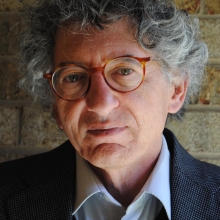From Soviet Bloc Support for Israel to the Undeclared Wars
East Germany and the West German Far Left from the Six Day War to the Collapse of Communism in Eastern Europe in 1989. (This is an event co-sponsored by the History Department)


During World War II and the Holocaust, the Nazi regime waged war not only against the Jews but also against the Zionist project. It sought and found allies in that effort among some Arab leaders as well as militant Islamists who collaborated with the Nazi regime. Anti-Zionism was thus viewed by many to be a reactionary phenomenon inseparable from the history of Nazism and antisemitism. With a mixture of the spirit of war time anti-fascism and in hopes that the establishment of the state of Israel would undermine British and more broadly Western influence in the Middle East, the Soviet Union supported the UN Partition Plan of 1947 calling for a Jewish and an Arab state in Palestine while the Czech Communist government sent weapons to the Zionists before the war of 1948. In Western Europe and in West Germany, support for Israel spanned the political spectrum from the Social Democratic left to the Christian Democratic right. In the course of the “anti-cosmopolitan purges” of 1949-1956 that the Soviet Union and the Communist regimes in Eastern Europe returned to what had been the Communists’ hostile view of Zionism before World War II. Thereafter anti-Zionism and antagonism to Israel again became defining features of Communist politics and remained so until 1989.
From 1949 to 1989 the German Democratic Republic or East Germany was the only member of the Warsaw Pact that never had diplomatic relations with Israel and was hostile to it for its entire history. It sent arms to the Arab states before 1967, intensified its support for them in the subsequent decades and became a major supporter of the Palestine Liberation Organization when it was carrying out terrorist attacks against Israel. In 1967, during and after the Six Day War, antagonism to Zionism and Israel as well as support for the Arab states and Palestinian armed organizations became a major current as well within the West German radical left and the several terrorist organizations that emerged in the 1970s. Based on research in the now available archives of the East German, West German, US and United Nations files it is now possible to document that in the last decades of the Cold War, the East German government and the West German far left were engaged in an “undeclared war” with Israel. This lecture presents results of this recent research on the changing political coordinates of anti-Zionism and antagonism to Israel in German history after the Holocaust.
Free and open to the public.